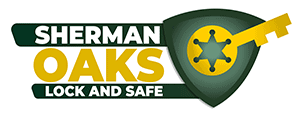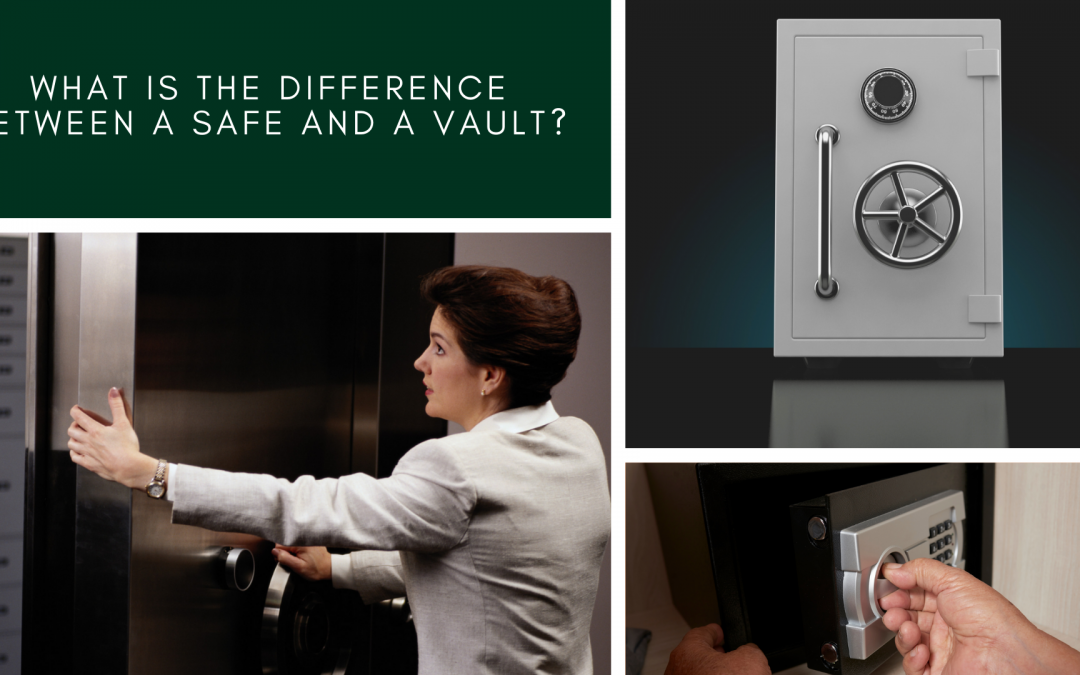Safes and vaults are both commonly used to keep the most precious valuables in the home safe from burglars and other intruders. However, what is the difference between the two? Unfortunately, only a few people know the exact distinctions between these terms. Many assume that safe and vault are just interchangeable words!
However, there are some key differences between a safe and a vault. And you must know about them to decide which one fits your residential or business security needs.
What Is a Safe?
A safe is a sturdy, lockable box that protects whatever valuables you place inside the box. They are usually hollow or cylindrical, with one side or face containing the unlocking mechanism. Safes are commonly made of steel or metal; you can mount them to a wall or have them freestanding. A well-made safe is theft-proof, letting only the owner access the possessions via a key, fingerprint identification, or a passcode. And depending on the quality of workmanship, a safe should be water and fire-proof for extra safety. A home safe is the most affordable way to safeguard everything, including your passports, titles, jewelry, and other prized possessions.
What Is a Vault?
Now that we know about safes, let us differentiate them from vaults. The main thing to remember is that a vault is a type of safe. “Safe” is the broader umbrella term; all vaults are safes, but you cannot consider all safes as vaults. Both mechanisms keep your valuables locked away, but one may be more beneficial for you than the other.
Safes and Vaults: The Difference
Before you call for a safe installation service, read on to spot the differences between the two.
Vaults are a larger-scale type of safe
One big difference is that a vault is usually for bigger-sized valuables, as it is built-in. Think of a bank vault – a room reinforced with steel locks and a sophisticated opening and locking system. So if you have valuables that are pretty large and need to be kept in a secure room, you will need to outfit your space with a vault. Otherwise, a safe will work just as well.
Think of vaults as the bigger and larger version of safes. They have more sophisticated locking systems. They are larger in size and sturdier – meaning harder to breach. While there is no hard-set rule for who can and cannot install vaults, you have to think about your situation. Safes are more common for home use as they protect a few pieces of documents, jewelry, and cash from theft. Even so, those with much more precious stuff to secure than the average homeowner will prefer vaults, even in residential spaces. Of course, safe repair and upkeep will differ significantly between a standard safe and a massive vault.
Safes are a smaller, more mobile option
While safes can also be built into your room walls, most of them are freestanding. Safes are, therefore, more mobile and can be transferred from one place to another. Meanwhile, vaults are room-size to stay in that specific spot. If you need a movable, secure mechanism to store your smaller items, choose a safe. However, a vault may be the better option for businesses, pawnshops, corporations, and government agencies that need to secure many more items.
Safe Locksmith Near Me
Now that you understand the differences between safes and vaults, you can decide which security system works best for your home or commercial property. Sherman Oaks Lock & Safe can assist you with all types of safes and vaults. Check out their latest locksmith services to better understand the market’s best safe and vault models. And if you need custom work, our locksmith professionals are highly qualified to meet your requirements. Call us today to learn more!


